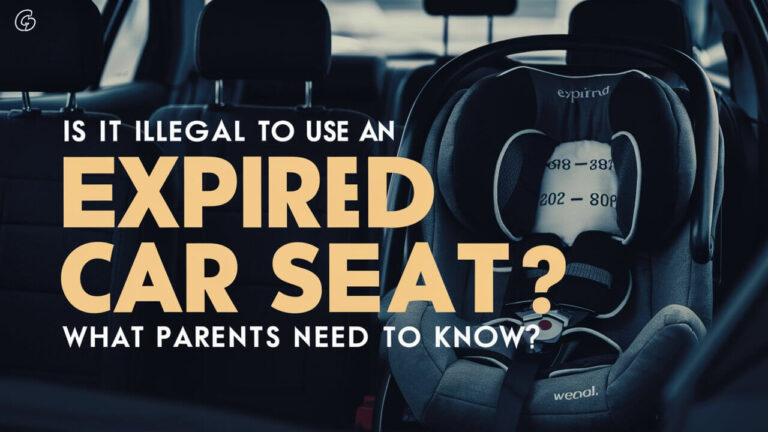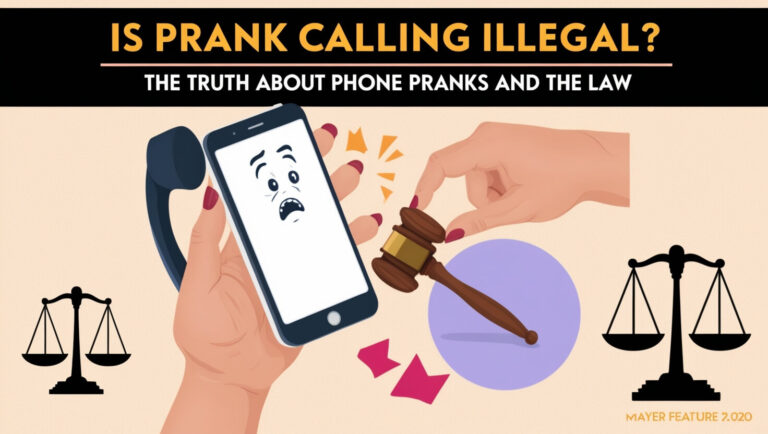Is Dumpster Diving Illegal in Ohio? Legal Status, Risks, and Best Practices

Dumpster diving, the practice of searching through commercial, residential, or industrial dumpsters for usable goods, has gained popularity in recent years. But is dumpster diving illegal in Ohio? The short answer is that dumpster diving is not explicitly illegal in Ohio. However, the legality can depend on various factors such as local ordinances, private property laws, and how the activity is conducted. This article will explore the legal landscape, safety concerns, and best practices for dumpster diving in the Buckeye State.
Understanding Dumpster Diving
What is Dumpster Diving?
Dumpster diving is the act of searching through commercial, residential, or industrial dumpsters to find usable goods that have been discarded. People engage in this activity for various reasons, from necessity to environmental consciousness.
Why Do People Dumpster Dive?
There are several motivations for dumpster diving:
- Economic necessity: Some people dive to find food or other essentials they can’t afford.
- Environmental concerns: Divers aim to reduce waste and reuse discarded items.
- Frugality: Some see it as a way to save money on goods they would otherwise purchase.
- Treasure hunting: The thrill of finding valuable items in unexpected places attracts some divers.
- Political statement: Some use it to protest against consumerism and waste.
The History of Dumpster Diving in Ohio
Dumpster diving isn’t a new phenomenon in Ohio. It has roots in the frugal practices of earlier generations who lived through economic hardships. In recent decades, it has evolved from a survival tactic to a multifaceted activity with environmental and social implications.
The Legal Landscape of Dumpster Diving in Ohio
State Laws on Dumpster Diving in Ohio
Ohio doesn’t have specific state laws that explicitly prohibit or allow dumpster diving. This legal gray area means that the activity’s legality often depends on other factors, such as local ordinances and property laws.
Local Ordinances and Regulations
While state law doesn’t prohibit dumpster diving, many Ohio cities and municipalities have their own regulations that may affect the practice. These local laws can vary significantly from one place to another, so it’s crucial to check the specific ordinances in your area.
For example, some cities may have laws against:
- Scavenging
- Trespassing
- Disorderly conduct
- Littering
Private Property Laws and Trespassing
One of the biggest legal concerns for dumpster divers in Ohio is trespassing. Most dumpsters are located on private property, and entering these areas without permission can lead to trespassing charges.
Key points to remember:
- If a dumpster is on private property, you need the owner’s permission to access it legally.
- Dumpsters in public areas, like those on the street for trash pickup, may be more accessible but could still be subject to local ordinances.
- “No Trespassing” signs should always be respected to avoid legal trouble.
Is Dumpster Diving Legal in Specific Ohio Cities?
Dumpster Diving in Columbus
Columbus, Ohio’s capital and largest city, doesn’t have laws specifically addressing dumpster diving. However, the city does have ordinances against trespassing and scavenging that could apply to dumpster diving activities.
Key points for Columbus:
- Always get permission before entering private property.
- Be aware of local littering laws if you’re sorting through trash.
- Avoid creating disturbances that could lead to disorderly conduct charges.
Dumpster Diving in Cleveland
Cleveland’s municipal codes don’t explicitly mention dumpster diving, but the city does have regulations that could affect the practice:
- Trespassing laws apply to entering private property without permission.
- There are ordinances against scavenging recyclables from city-owned receptacles.
- Littering laws could be applied if divers don’t clean up after themselves.
Dumpster Diving in Cincinnati
Cincinnati has specific ordinances that could impact dumpster diving:
- The city prohibits “scavenging” from waste containers without permission.
- There are strict rules about entering private property without consent.
- Cincinnati has programs for proper disposal and recycling, which they encourage residents to use instead of dumpster diving.
Potential Legal Consequences of Illegal Dumpster Diving in Ohio
Even though dumpster diving isn’t explicitly illegal in Ohio, several legal issues can arise from the practice.
Trespassing Charges
Trespassing is one of the most common legal risks for dumpster divers. In Ohio, trespassing can be charged as a misdemeanor, potentially resulting in fines and even jail time for repeat offenders.
Theft Accusations
If a property owner claims that you’ve taken items they didn’t intend to discard, you could face theft charges. This is particularly risky when diving in commercial dumpsters where valuable materials might be temporarily stored.
Disorderly Conduct Citations
If your dumpster diving activities create a disturbance or if you leave a mess, you could be cited for disorderly conduct. This charge can carry fines and potential jail time in Ohio.
Safety Concerns and Health Risks of Dumpster Diving
While legal issues are a significant concern, safety should be your top priority when considering dumpster diving.
Physical Hazards
Dumpsters can contain sharp objects, broken glass, or other dangerous materials. There’s also a risk of injury from climbing into or out of dumpsters.
Safety tips:
- Wear thick gloves and sturdy shoes.
- Never enter a compactor dumpster.
- Be cautious of sharp edges and protruding objects.
Biological and Chemical Risks
Dumpsters can harbor harmful bacteria, mold, or parasites. There’s also a risk of exposure to hazardous chemicals or materials.
Health precautions:
- Avoid diving for food unless you’re certain of its safety.
- Be wary of items that could have been exposed to chemicals or bodily fluids.
- Always wash your hands thoroughly after diving.
Legal Liability Issues
If you’re injured while dumpster diving, you may have limited legal recourse, especially if you were trespassing at the time of the injury.
Best Practices for Legal and Safe Dumpster Diving in Ohio
To minimize legal and safety risks, follow these best practices:
Know the Local Laws
Research the specific ordinances in your city or town. What’s legal in one part of Ohio might be prohibited in another.
Respect Private Property
Always get permission before entering private property. If a dumpster is behind a locked gate or fence, consider it off-limits unless you have explicit permission.
Practice Good Hygiene and Safety
- Wear protective gear like gloves and closed-toe shoes.
- Bring a first aid kit and hand sanitizer.
- Don’t dive alone – bring a buddy for safety.
- Avoid creating a mess or disturbing the area.
Environmental Impact of Dumpster Diving in Ohio
Dumpster diving can have both positive and negative environmental impacts.
Reducing Waste
One of the primary arguments in favor of dumpster diving is its potential to reduce waste. By recovering usable items from the waste stream, divers can help decrease the amount of material ending up in landfills.
In Ohio, where landfill space is becoming increasingly scarce, this could be seen as a positive impact. The Ohio Environmental Protection Agency reports that the state’s landfills received approximately 15.6 million tons of waste in 2020. Dumpster diving could potentially help reduce this number.
Promoting Recycling and Reuse
Dumpster diving often goes hand-in-hand with a “reduce, reuse, recycle” mentality. Many divers repurpose or upcycle items they find, giving new life to objects that would otherwise be discarded.
This practice aligns with Ohio’s efforts to increase recycling rates. The state has set a goal to reach a 50% recycling rate, and while dumpster diving isn’t an official part of this strategy, it does contribute to the overall ethos of waste reduction.
Challenges and Criticisms
Despite its potential benefits, dumpster diving faces several environmental criticisms:
- It may discourage proper waste management practices.
- There’s a risk of spreading contamination if hazardous materials are improperly handled.
- If not done responsibly, it can create additional litter and mess.
Ethical Considerations of Dumpster Diving
Food Waste and Poverty
Dumpster diving often intersects with issues of food waste and poverty. In Ohio, where 13.2% of the population lived in poverty as of 2019, some argue that dumpster diving for food is a necessary survival strategy.
However, critics argue that dumpster diving for food can be dangerous and that efforts should instead focus on improving food distribution systems and reducing waste at the source.
Corporate Responsibility
The prevalence of usable goods in dumpsters raises questions about corporate waste practices. Some argue that businesses should be held more accountable for their waste and encouraged to donate usable items instead of discarding them.
In Ohio, the Good Samaritan Food Donation Act provides liability protection for businesses that donate food in good faith, which could encourage more donation instead of disposal.
Community Perceptions
Attitudes towards dumpster diving can vary widely within communities. Some see it as a pragmatic response to waste and consumerism, while others view it as unsightly or even criminal behavior.
These differing perceptions can influence local policies and enforcement practices regarding dumpster diving.
Alternatives to Dumpster Diving in Ohio
For those interested in the goals of dumpster diving but concerned about its legality or safety, there are several alternatives:
Food Banks and Donation Programs
Ohio has a network of food banks and donation programs that provide food and other essentials to those in need. These organizations often receive donations from businesses that might otherwise discard usable items.
Freecycling and Buy Nothing Groups
Many Ohio communities have freecycling networks or “Buy Nothing” groups where people give away items they no longer need. These can be great sources for free goods without the legal and safety risks of dumpster diving.
Thrift Stores and Secondhand Shopping
Ohio has numerous thrift stores and secondhand shops where you can find low-cost goods. While not free, these options provide a legal and safe alternative to dumpster diving.
The Future of Dumpster Diving in Ohio
Changing Laws and Regulations
As awareness of waste issues grows, we may see changes in how Ohio laws and local ordinances address dumpster diving. This could involve more explicit regulations, either restricting or protecting the practice.
Technological Innovations
Technology could impact dumpster diving in several ways:
- Apps that connect people with excess food or goods, reducing the need for diving.
- Improved waste sorting technologies that make it harder to find usable items in dumpsters.
- Security systems that make unauthorized dumpster access more difficult.
Shifting Social Attitudes
Public perception of dumpster diving may continue to evolve. As environmental concerns grow, we might see more acceptance of the practice as a form of waste reduction. Conversely, increased focus on food safety and liability issues could lead to greater restrictions.
Final Thoughts: Navigating the Legality of Dumpster Diving in Ohio
So, is dumpster diving illegal in Ohio? The answer isn’t a simple yes or no. While there’s no state law explicitly prohibiting the practice, its legality depends on various factors including local ordinances, private property laws, and how the activity is conducted.
If you’re considering dumpster diving in Ohio:
- Research local laws in your specific area.
- Always respect private property and “No Trespassing” signs.
- Prioritize safety with proper gear and precautions.
- Consider alternatives like food banks, freecycling groups, or secondhand shopping.
Remember, while dumpster diving can be a way to reduce waste and find useful items, it’s crucial to balance these potential benefits with legal and safety considerations. By staying informed and respectful, you can make responsible decisions about whether and how to engage in this practice in Ohio.






